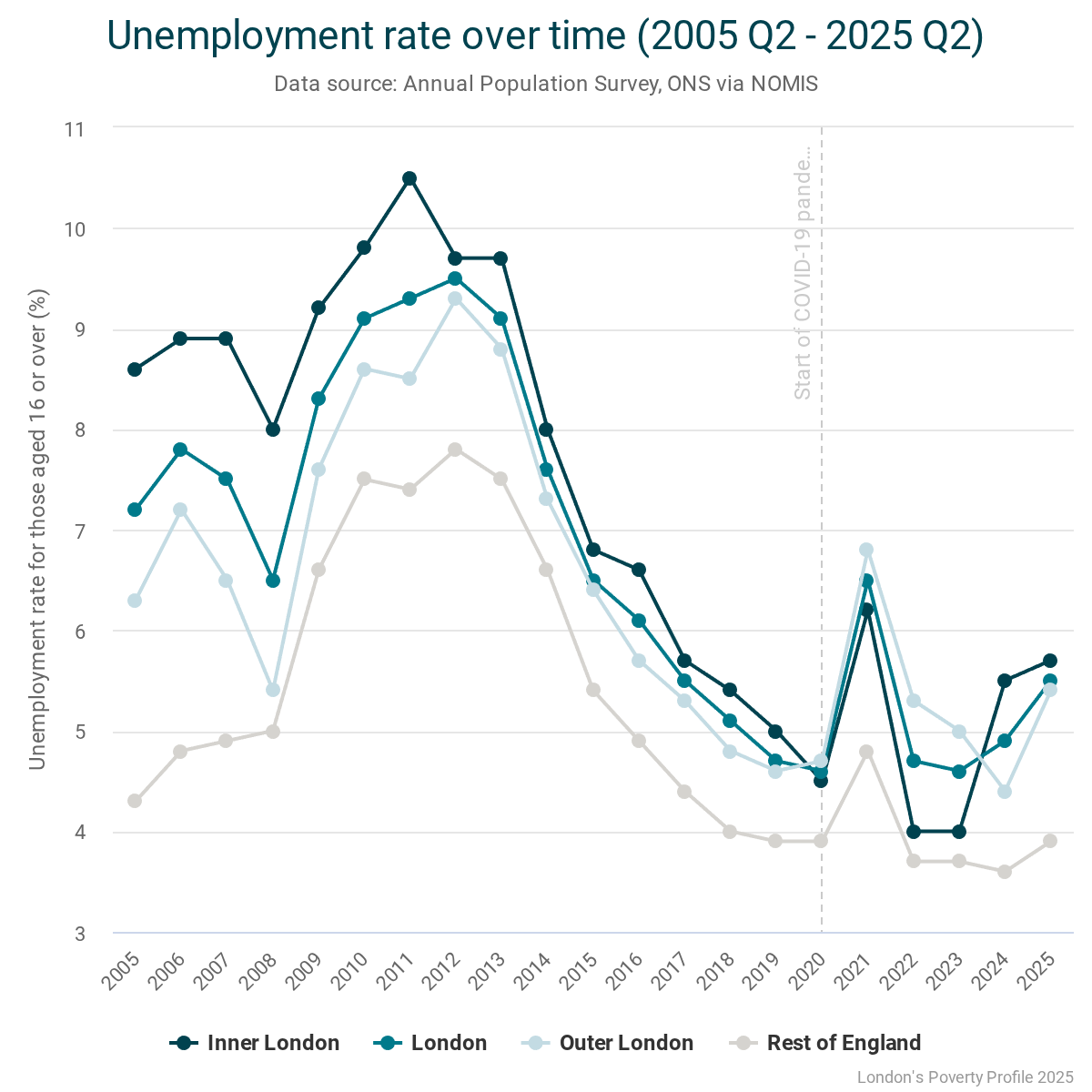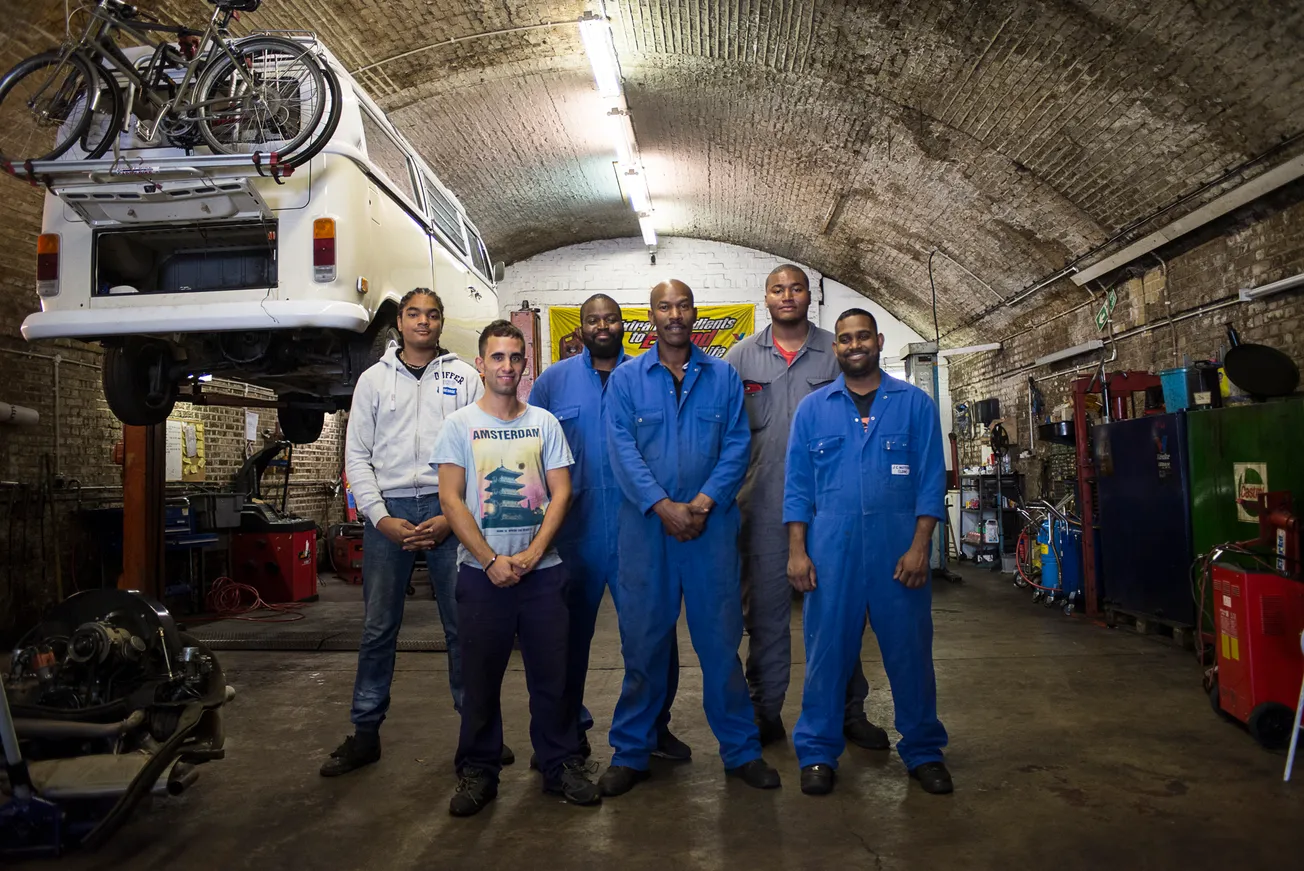It’s time to be frank with you: we really need your help. The Londoner can only continue to funnel time, effort and resources into high-quality investigations and features if we have the money to keep afloat. And currently, we aren’t even breaking even. But our mission is about more than just us: it’s about rescuing the media ecosystem from the hands of the billionaires and investment funds that have controlled it for so long. If you think that sounds like a good idea, join our grassroots initiative and become a part of The Londoner community today.
We've made it easy too: with our new member discount, a Londoner membership is just £1.25 a week. If you like what we're doing, please consider supporting us.
More than anywhere else in England, London isn’t working. What may have seemed like little more than a hunch, a vague sense borne of increased numbers of applications on job portals or fewer entry level staff at the office, has been confirmed in cold, hard data: the capital’s unemployment rate has risen at a faster rate than the rest of the country.
The reasons for this are manifold: the advancement of AI, weak economic growth, the rise in national insurance contributions for employers, the impact of US tariffs, the stagnation of real GDP, the ramifications of austerity and the pandemic.
Regardless of the causes, the findings are much the same. According to the Trust for London, the last two years have seen a jump in unemployment in inner London (4% in 2023 to 5.7% in 2025), while outer London shows a sharp increase in the past year (4.4% in 2023 to 5.4% in 2025). This is compared to an average of 3.9% for the rest of England. Meanwhile, recent reports from KPMG announced that businesses are tightening their belts, with an ongoing decrease in hiring in both permanent and temporary roles coupled with a leap in candidate availability (mostly driven by rising redundancies).

Of course, statistics can’t show the whole picture. Unemployment isn’t just a matter of numbers to be debated by economists. It’s also real people, applying for hundreds of jobs a week only to get rejection emails written by ChatGPT, and increasingly panicked about how they’re going to make their next rent payment. That’s why we wanted to speak to real people affected in the capital to find out what it’s been like for them.
What we found was a crisis among white-collar professionals — those working in formerly resilient areas such as finance, content production, marketing and admin (no wonder, perhaps, when McKinsey prophesied that the use of AI is likely to most affect “professionals in data, design, media, research, legal, HR, finance, and business”). It was startling to see the shame our subjects felt about being unemployed, despite how many people were in exactly the same situation. Many didn’t want their names used and preferred to remain anonymous. There was a pervading sense, despite the data, that the failure to find a job was also a personal failing. All of them were applying to dozens of jobs each week, including positions they were far overqualified for, as well as attempting to secure work in hospitality or the service industry (often unsuccessfully).
So, who are London’s white-collar unemployed? What roles are vanishing? And how do you get by in one of the world’s most expensive cities without work?
Billy (25, video editor)
“I got made redundant in mid-May. For the first three months I was just kind of all over every job site, especially LinkedIn and another website for film work called Grapevine, looking at job listings as well as posts about freelance stuff. I’d just be on it doing ten a day, personalising every application.
Now, I’m pretty deflated with the whole thing. There’s nothing I can do anymore. I’ve got to the final stage so many times: you do a job interview, which is a 50 minute call; then you do another job interview, which is 30 minutes; sometimes even another job interview; and then they expect you to do a week’s worth of work for free, where you have to do a test edit for them, and I spend so much time doing it when I could be looking for work. Then they turn around and say no, we’re not giving you work, and you’re not getting compensated for the time you spent.
London deserves great journalism. You can help make it happen.
You're halfway there, the rest of the story is behind this paywall. Join the Londoner for full access to local news that matters, just £8.95/month.
SubscribeAlready have an account? Sign In







